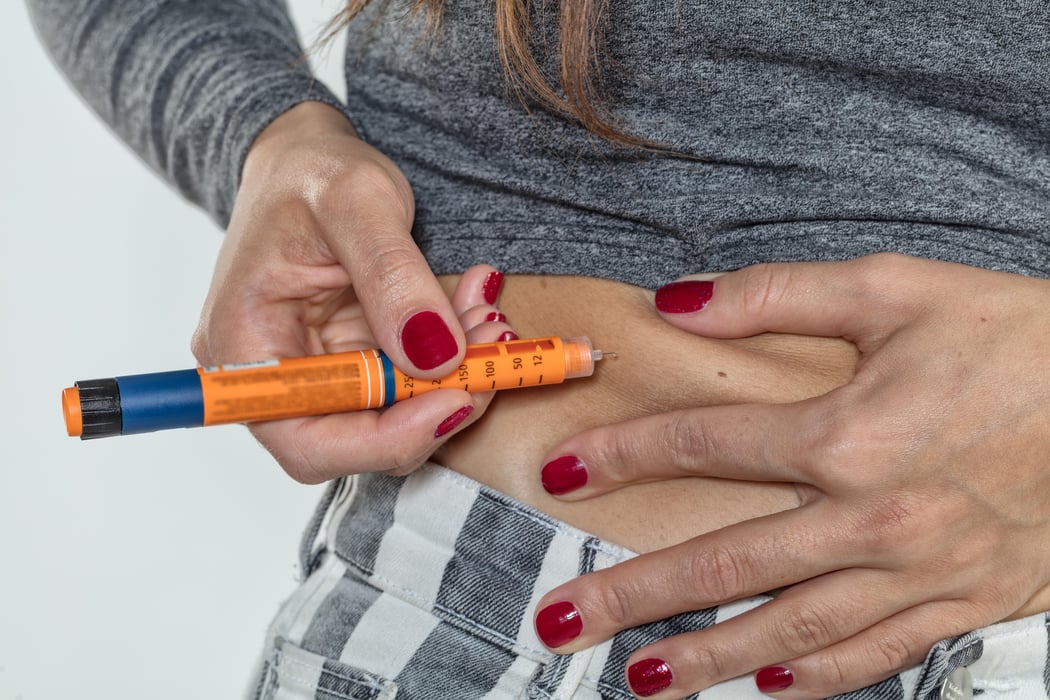Reductions Seen in HbA1c, Body Weight With Once-Weekly Tirzepatide

FRIDAY, Oct. 6, 2023 (HealthDay News) -- For patients with inadequately controlled type 2 diabetes, once-weekly subcutaneous injections of tirzepatide yield reductions in hemoglobin A1c (HbA1c) and body weight compared with insulin lispro, according to a study published online Oct. 3 in the Journal of the American Medical Association to coincide with the annual meeting of the European Association for the Study of Diabetes, held from Oct. 2 to 6 in Hamburg, Germany.
Julio Rosenstock, M.D., from Velocity Clinical Research at Medical City in Dallas, and colleagues examined the efficacy and safety of tirzepatide versus insulin lispro as an adjunctive therapy to insulin glargine in an open-label study conducted at 135 sites in 15 countries involving 1,428 adults with type 2 diabetes taking basal insulin (mean HbA1c, 8.8 percent). Participants were randomly assigned to once-weekly subcutaneous injections of tirzepatide 5, 10, and 15 mg (243, 238, and 236 participants, respectively) or prandial insulin lispro three times/day (708 participants).
The researchers found that the estimated mean change from baseline in HbA1c was −2.1 with tirzepatide (pooled cohort) and −1.1 percent with insulin lispro at week 52, resulting in mean HbA1c levels of 6.7 and 7.7 percent, respectively; these results met the noninferiority criteria, and statistical superiority was achieved. The estimated mean change from baseline in body weight was −9.0 and 3.2 kg with tirzepatide and insulin lispro, respectively (estimated treatment difference, −12.2 kg). The percentage of participants reaching HbA1c <7.0 percent was 68 and 36 percent with tirzepatide and insulin lispro, respectively (odds ratio, 4.2). Hypoglycemia event rates were 0.4 and 4.4 events per patient-year with tirzepatide (pooled) and insulin lispro, respectively.
"Weekly tirzepatide compared with prandial insulin as an add-on to insulin glargine demonstrated reductions in HbA1c and body weight with less hypoglycemia," the authors write.
Several authors disclosed ties to pharmaceutical companies, including Eli Lilly, which manufactures tirzepatide and funded the study.
Related Posts
Air Pollution Exposure Tied to Smaller Babies at Birth
MONDAY, Sept. 18, 2023 (HealthDay News) -- Women exposed to air pollution...
Omicron Hits Younger People, But Less Likely to Bring Long Hospital Stays
MONDAY, Feb. 7, 2022 (HealthDay News) -- Omicron COVID-19 patients are younger...
Top FDA Official Involved in Baby Formula Debacle Resigns
THURSDAY, Jan. 26, 2023 (HealthDay News) -- A U.S. Food and Drug Administration...
